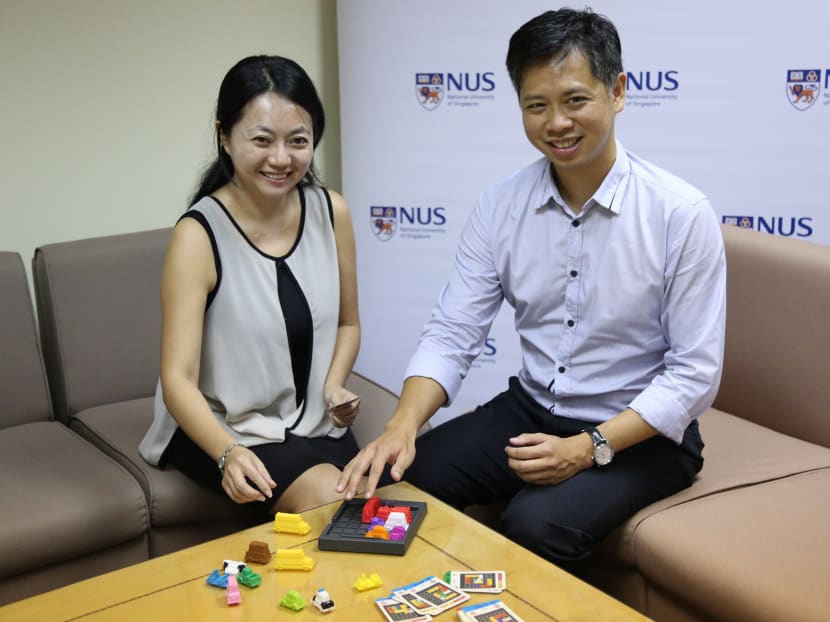Pushy parents could lead to children with depression or anxiety: NUS study
SINGAPORE – Push your child too hard and he or she could suffer from depression or anxiety, and may even lead to suicide.

NUS researchers Assistant Professor Tsai Fen-Fang (left) and Assistant Professor Ryan Hong (right). Photo: NUS
SINGAPORE – Push your child too hard and he or she could suffer from depression or anxiety, and may even lead to suicide.
This was the finding of a five-year study on primary school children in Singapore by researches from the National University of Singapore (NUS). It involved 7-year-olds from 10 schools and the parent that was more familiar with the child. The study found that children with intrusive parents had a higher tendency to be overly critical of themselves, which got worse over the years.
The children who demonstrated high or increased levels of self-criticalness also reported having elevated depression or anxiety symptoms.
Assistant Professor Ryan Hong, who led the study which was conducted by a team of researchers from the Department of Psychology at the NUS Faculty of Arts and Social Sciences, said: “When parents become intrusive in their children’s lives, it may signal to the children that what they do is never good enough. As a result, the child may become afraid of making the slightest mistake and will blame himself or herself for not being ‘perfect’.”
Asst Prof Hong added that over time, such behaviour, known as maladaptive perfectionism - commonly known as the ‘bad’ form of perfectionism - develops and may be detrimental to the child’s well-being as it increases the risk of the child developing symptoms of depression, anxiety and even suicide in very serious cases.
In the first year of the study, Asst Prof Hong and his team assessed parental intrusiveness using a puzzle played by the child, then 7, with the parent accompanying the child. The puzzle had a time limit, and the parent was told that he or she could help the child whenever necessary.
An example of a highly intrusive parental behaviour would be when the parent took over the game to retract a move made by the child. The purpose of this task was to observe whether the parent interfered with the child’s problem-solving attempts, regardless of the child’s actual needs.
Subsequent assessments on the children were carried out at ages eight, nine and 11.
Of the 263 parent-child pairs studied from 2010 to 2014, 60 per cent of the children were classified as high and/or increasing in self-criticalness, while 78 per cent of them demonstrated socially prescribed perfectionism – characterised by the perception of others having unrealistic high expectations of oneself.
59 per cent of the children demonstrated both self-criticalness and socially prescribed perfectionism.
“Our findings indicate that in a society that emphasises academic excellence, which is the situation in Singapore, parents may set unrealistically high expectations on their children. As a result, a sizable segment of children may become fearful of making mistakes,” Asst Prof Hong said.
“Also, because they are supposed to be ‘perfect’, they can become disinclined to admit failures and inadequacies and seek help when needed, further exacerbating their risk for emotional problems,” he added.
The findings of study were published online in the Journal of Personality in March 2016. This study is funded by the Singapore Children’s Society, as well as the Social and Family Research Fund awarded by the Ministry of Social and Family Development.











